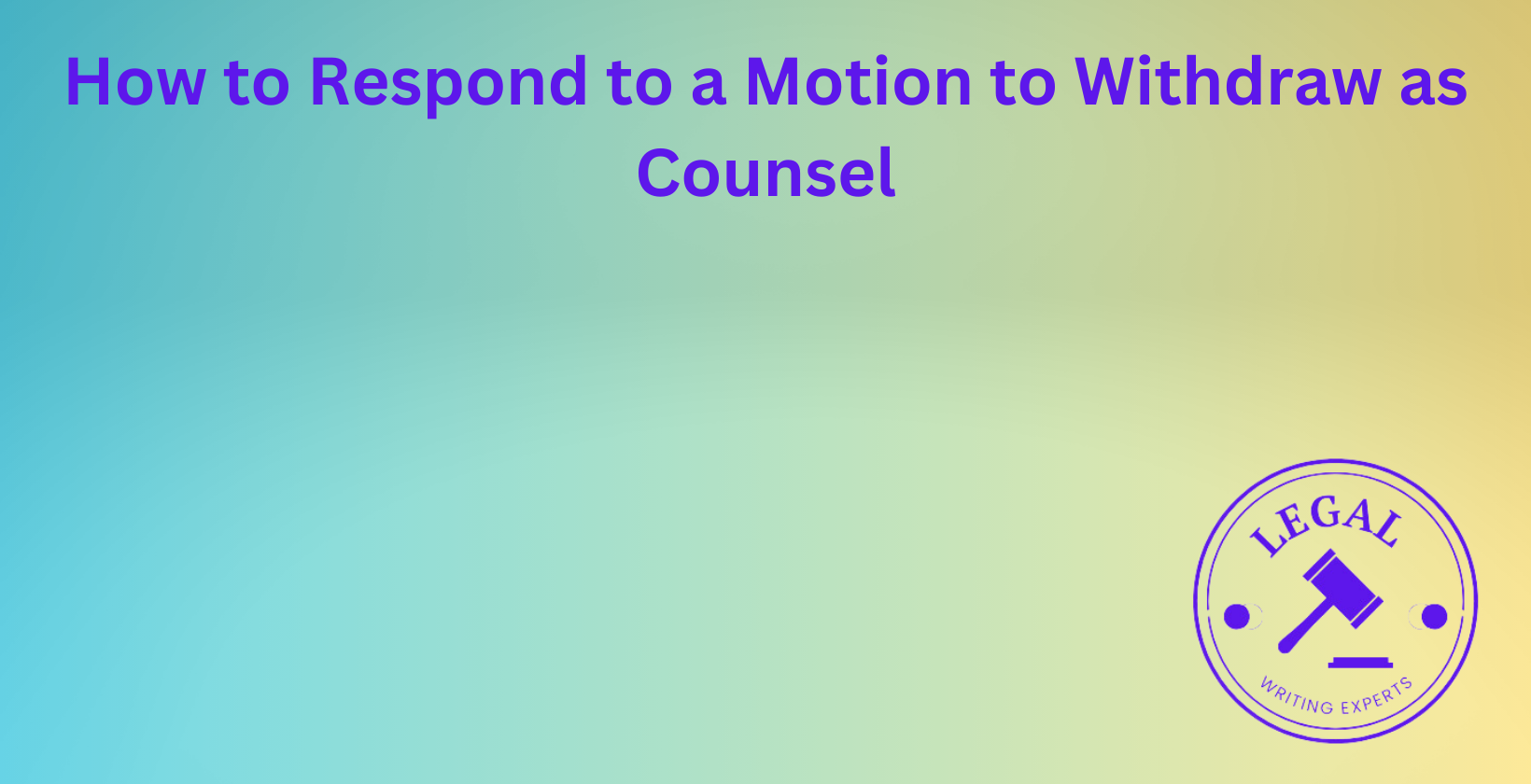How to Respond to a Motion to Withdraw as Counsel
Written by
Jessica E
February 24, 2025 · 8 min read

A motion to withdraw as counsel can significantly impact the course of a legal proceeding. It is essential for the party involved to understand how to respond appropriately to ensure their interests are protected. This article will guide you through understanding, writing, and effectively dealing with a motion to withdraw, including hiring legal help, ethical considerations, and potential consequences of inaction.
What is a Response to a Motion to Withdraw as Counsel?
A response to a motion to withdraw as counsel is a legal document filed by a client opposing their attorney’s request to withdraw from representation. This document outlines reasons why the court should deny the attorney’s motion and allow them to continue representing the client.
How to write a Response to a Motion to Withdraw as Counsel?
To write a response to a motion to withdraw as counsel, begin by clearly stating your opposition to the motion. Detail any factual disputes, legal grounds, and the potential adverse effects on your case if the motion were granted. Reference relevant laws and previous court rulings to strengthen your argument.
Where to hire a legal writer to draft a Response to a Motion to Withdraw as Counsel?
To hire a legal writer for drafting a response, consider legal drafting services or online legal document platforms such as Legal writing Experts. Look for professionals with experience in legal writing services or those who specifically advertise their expertise in lawyer legal documents.
How to file a Response to a Motion to Withdraw as Counsel?
Filing a response involves submitting the written document to the court handling your case. Ensure the response meets all local court rules for format and deadlines. You might need to serve a copy of the response to the withdrawing counsel and other parties involved in the case.
What impact does a Motion to Withdraw as Counsel have on ongoing legal proceedings?
Yes, a motion to withdraw as counsel can disrupt ongoing legal proceedings. It may cause delays, affect the continuity of legal strategy, and require the client to find new representation, potentially jeopardizing the client’s position in ongoing legal matters.
What are the common legal grounds for opposing a Motion to Withdraw as Counsel?
Common legal grounds for opposing such a motion include the timing of the request, which may prejudice the client’s case, or the lack of a suitable replacement counsel, which could leave the client unrepresented.
What procedural steps should be taken when contesting a Motion to Withdraw as Counsel?
When contesting a motion to withdraw as counsel, the procedural steps include filing a timely response, attending any scheduled hearings, and possibly presenting oral arguments against the withdrawal to demonstrate how it could negatively impact your case.
How do ethical considerations affect the response to a Motion to Withdraw as Counsel?
Ethical considerations play a critical role in responding to a motion to withdraw. They ensure that the attorney’s withdrawal will not cause undue harm or prejudice to the client’s case, upholding the integrity of the legal profession.
What legal arguments are most effective in opposing a Motion to Withdraw as Counsel?
The most effective legal arguments include demonstrating that the withdrawal would cause significant prejudice to the client’s case, proving that the reasons for withdrawal do not comply with ethical or legal standards, or showing that the timing of the withdrawal is strategically disadvantageous to the client.
What are the potential consequences of failing to respond to a Motion to Withdraw as Counsel?
Failing to respond can result in the court automatically granting the motion, leaving the client without legal representation. This could lead to delays in the case, increased legal costs, or a negative outcome for the client’s legal issue. It is crucial to address every motion to withdraw promptly and thoroughly.


